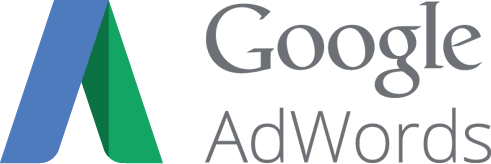Brad Post, Create the Movement, Host
Vahid Farzaneh, Freestyle Creative, Guest
Brad Post, Create the Movement, Host: Welcome back to this edition of Create the Movement podcast. I am very excited to finally connect to an awesome guy, Vahid Farzaneh. Did I pronounce that correctly?
Vahid Farzaneh, Freestyle Creative, Guest: Yes, yes. It’s technically pronounced VA-heed.
BP: Okay. Vahid Farzaneh Of Freestyle Creative in Oklahoma City – freestyleokc.com. It’s kind of neat how you and I connected. I think one of your team members is related to one of my team members’ wives. And just heard a lot about you guys as we got on your email list. Looks great. You guys do great work. I’m excited to speak to you.
VF: Thank you! Same here. Very excited. Heard great things about you guys as well.
From Freelance to Full-Service Agency
BP: Awesome. I just want to hear a little bit about your story. Where you started. How you started. That type of stuff.
VF: Okay. So, let me see how far back I should go. I’ll start with graduating from college, or right about that time. So, I went to OU from Norman, and I got a degree in Film and Media Studies. Before I did that, I bounced around a lot. I was originally a zoology major. In our tradition, you would either be a doctor, a lawyer, or an engineer. Pick one of the three. So, creative didn’t really fall into that category. So, I originally tried zoology. Man, becoming a doctor. I respect people who do it, it just wasn’t for me.
I switched around. I took some business classes. I really enjoyed business, but I think I’d taken a film and media studies class and I really enjoyed the creativity. I just felt like that’s where my passion was. People say, “Hey. Find out what you really enjoy and you’ll be successful. And you’ll be really happy because you never worked a day in your life.”
So, the year before I graduated, I was on the five-year program, not the four-year program. It took me an extra year. But that last year I slowed it down on purpose because I was freelancing. I was doing a lot of video work, commercials, corporate videos, a lot of boring stuff. Things that you don’t assume are real. You don’t see them on their company website. It’s just the basic, green, just-out-of-college quality work. We had clients.
And the year I graduated, I had been doing it for a year, when I graduated I had enough work to where – I graduated in ’07 – I had enough work to where I hired on a part-time editor. It went full time. So, I had one person helping me. It was me by myself at the time. And I was working out of my house. I had a little Mac computer and a little room and we we’re just working. So, very humble beginnings. Nothing incredible. I had a little Panasonic HVX200 camera. That’s when they were going from mini-DV to P2 cards. Wow, we’re going to really advance! It’s an HD camera. It’s interlaced, though. It’s 1080i.
When I graduated, I’d been freelancing for a year, but then I was like, “Let me from my LLC. Make it a company.” We called it Freestyle Productions. It sounded like a cool name. People were like, “How did you come up with Freestyle?” It sounded competitive. It sounds really flexible, adaptive, you know, we’re adaptive and I kind of liked that creativity. We can do whatever. We can change. We can adjust. We’re competitive. That was Freestyle.
Throughout the years, we did a lot of video production. One thing that was our biggest weakness with a video-production company was we’d hustle, hustle, hustle, get a client, do one project, and be done with it. It’s a lot of work to get one client, and then you’re done. Because how much video does one client really need? Unless it’s a huge account. Usually the people who have a lot of work also have other needs. They don’t want to do just media. They want to do to media buys, they want to PR, they want to do digitals, they want a full-on campaign, they want research. I can’t do that. I’m a freelancer practically at that point, so I’m really small.
So, we went through that phase for a while. It always went from me to four employees at one point, and it came back down. I could never sustain it. It was very hard. After freelancing with agencies and just learning about the system, and the process, and how they do it. Every time I go an agency’s office, you know how agency’s offices look like. They’re just beautiful, so creative. And here I am, I got a Mac Pro. You know? A camera. It just looks so cool. “Man, I want to work here one day.” Right?
And one day, I don’t know what really got me into that, maybe it was, “I need to go all in, or nothing.” We’re going to go full-service agency. It was like full-service from day one. We added digital. So, it was January 15th of 2014 when we landed when we landed our first digital client.
BP: Nice!
VF: Yeah. I know. It was exciting, and part of it was we were scared. “Oh man. I’m a video guy. Digital can’t be that bad. Right?” I kind of self-taught it myself. Researching online, blogs, podcasts, you name it. Talking to people. And we brought on our first client and we started doing work for them.
Part of that, also, was we have a film background. So, we we’re involved with films. So, we partnered up with filmmakers. I used to produce films on my own – write, direct, edit and produce. But I got to a point where time became an issue. So, it’s like, “Let’s partner up with other filmmakers that want to do that.” And we do it as a team project so it’s less exhausting on your resources. You don’t make money. It’s like a client job, it’s free, like a passion-project. Right?
We were doing market for these films. We create these films and market them on social media, or on our newsletter, maybe make a website for it. So, form that we were like, “Hey. Wait a minute. We kind of do some of this stuff. Let’s go ahead and try it out a client and see how it works out.” And it worked out very well. Long story short, we brought on clients and we showed them the results. And they got results. And we were super excited.
It’s one thing when you create a video and see other work – the creative. But it’s another thing that they also got clients from it; and you track that. And that got me very excited. I was like. “Woah!” We were able to show our value. Really prove the number, the metrics, and say, “Hey. You spent x amount and you got…” For example, for a home builder, if our testimonial video, plus our marketing, they were able to track three home sales from that. And say they were making $20,000 off each. That’s $60,000 profit off of something that may have cost them $5000, $10,000.
When you show those numbers it really gets you excited. I was super-pumped upped. This is really cool! I wish I would have done this sooner! But there’s also the knowledge of how to do that – something we had to overcome. How do we do that? How does this work? It’s a lot for an entrepreneur starting out. I’ve got a video background. You have all these things going. You’re getting the business. You’re doing the business. You’re guiding the business. You’re running the business. And now, you’re expanded the services. It was a lot. And have a work/life balance. I got married young. And you don’t want to not be there. Right?
BP: Right. Right.
VF: I don’t know my wife! Right? Who is this stranger? So, I remember actually one day, and this is why we pivoted into doing marketing, I remember I used to freelance on movies. I’m not going to name the film here, but it was not a great experience. We were working 16-hour days. Six days a week – minimum.
BP: Wow.
VF: Yeah. And it was a very bad environment. Bad culture. And I remember that month. We were married that month. And I came home, and I saw her once. We had a communication once, or twice that month. It was that bad. And I realized, “I don’t know why I’m doing this. This is not sustainable. Am I really enjoying this? Because the culture on that set was really bad. You know what? I’m probably going to pivot into something else.” And I wasn’t exactly sure what. And that’s what got me interested because, what I envisioned my future being, it wasn’t there. My future was I want to have my family. I want to be able to do work, but I don’t want to take it to that level. Even though I really enjoyed it, but I had to pivot into something.
And it was really hard for me to let go of video, because I was very hands on. And I remember my dad had recommended a book to me. It was called ‘E-Myths.’ Are you familiar with that book?
BP: Yes. It’s actually sitting on my desk right now.
VF: I would say this one book really [] me into trying a new marketing perspective. Because what it meant was I had to let go of being hands on. I couldn’t be doing the videos. I couldn’t be editing. I couldn’t be doing social media. I couldn’t be doing anything. My job, at least at some point, is to work on the business. And let me tell you it was a very hard transition, mentally.
BP: So transitioning from the technician to the entrepreneur. Right?
VF: Was very difficult because for years I’d been hands on. I had all this technical knowledge. All this technical experience. It didn’t make sense. Right? You have all this knowledge, and then you bring on someone, and I got to be as good as you. Right? Because you’re the expert. You’re known for it. So, it was little frustrating at first. But the more I let people make mistakes, and then learn, the better off the company was. So, I kind of let go.
And at one point, I think it was 2014. I think it was 2013, summer, was when I had a video guy on here. And he was really taking care of everything. I wasn’t touching anything. I wasn’t doing any of the technical. In 2013, I had kind of detached myself from being the technician. And it was very good. I was happier. So much happier. It just felt like, “Man. I have a life now. Life is good. I have a weekend. Oh my gosh! I’m going to something this weekend. I’m going to go see my wife. And we’re going to hang out and watch a movie.”
Redefining and Growing Freestyle Creative
VF: So, 2014 we did that and I brought on. I’d say here’s one of the big game changers. I had a business coach. I bought on a business coach to teach me because I didn’t know what the heck I’m doing. Right?
I met this business coach from my uncle, who used to work with him. And man, what he was talking about, what he knew, my world was. It was just a total mess. I don’t have systems. I don’t have processes. I don’t have a defined culture. I don’t have a mission. What are we doing? Why are we even doing? Why do I go to work? What’s the purpose? What is core value? Why am I hiring someone? What’s the character? All these things I never thought about. I was like, “Oh, he makes some valid points!” Yeah, maybe we should think about these things.
That helped a ton. He really taught me how to look for how to hire the right people. Look for the right people. Summer of 2014, I hired on Kelly Gann. And she was our digital marketing strategist. I didn’t have much experience in marketing. She was a PR major. She worked at the largest advertising agency here in the state. Has a ton of experience. When I say ‘ton of experience,’ when you’re working with an agency you typically get 80 hours of work in a week. So, you get a lot of experience really fast. So, I had hired her on, and man, she hit the ground running. She built our website, also, out of nowhere. One month, we have this beautiful website. I’m like, “Wow. She completely redid all of that. And that’s incredible.” She was project managing some of our clients’ accounts.
And I just bringing on business. All I was doing was doing was business development. She was also systemizing at the same time. So, it was a very, very, very good hire. And my business coach always taught me to hire A-players, and how to identify them, and invest in them. Hire very slow. Make sure you make the right decision. You’re not hiring because I need someone fast, or I need the cheapest person. I need to just really think about it and make sure that they’re the right fit for the culture. Are you hiring based off of character, or skills? You always want to hire based off of character. Are they an A-player, or are they not an A-player? Be patient with it. Sometimes, when you’re like defusing a fire, you’re like, “Oh my gosh! I need to hire someone fast!” You take shortcuts. And I try really hard to really take my time on that – a couple of months. And it was a hard environment to find that one person. I gave her a call. She came in, did an interview. I was like, “Yup. She’s got a ton of experience.” And she seemed like the right fit. Great character.
And that really was a big game-changer for us. Getting the A-player on the team. And really allowed me to completely hand off everything except business development. For the most part. And she kind of helped grow the team. Build a marketing department. Create an internship program. As a team we created a culture, core values, our mission, or vision, our purpose. Create KPIs. She had a lot to do with all of that. And she went from divisional marketing strategist to the director of marketing that oversaw all of our clients. As we hired more people. And now she’s the president of the company. And she oversees pretty much everything. And I’m, at this point, literally all I do is go meet people and talk.
BP: And you enjoy that?
VF: Oh, my gosh! It’s my favorite thing. I don’t even feel like I’m working. I feel guilty sometimes. I love it so much. It’s like, “Man. I hope they’re enjoying their job as much as I do because this is too much fun.” And some of it, maybe that’s not something Kelly wants to do. [Kelly]: “You know what? I like what I do.” I like what I do. So, it’s a good fit. She like to build this this company and work, and work in it a little bit more. Whereas I’m kind of hands off. Doing the development side of things.
So, fast forward to today, we have 12 employees on salary. We’re about to hire two more. It’s going to be 14 very soon. We actually have them picked out. We’re just doing a final round. They don’t know who they are yet, but we have them picked out. We’re going to hire them on here December/January and have 14. Plus, we have three or four contractors that we use regularly. And then we have two interns. And I have three other people. I consider my business coach part of the team. I meet with him weekly. He helps guide the business. So, it’s like 22 people. If I did the math right. That’s our size. They really help guide the company to have a lot more experience.
That’s another thing. We’re young, so I try surround myself with people who have – they’re in their sixties, I think. I’m guessing here. I don’t ask them how old they are. But they have experience. Some have 40 years of experience. That’s like a 120 years just amongst them. Kind of helping us, guiding us. And we meet with and they’re just helping us a ton. And just guiding us and helping with connections and business development. And that’s helped me a ton -surrounding myself with these people on the team side.
We’ve accomplished a lot in the past three years. We have almost double in size and staff and our revenue. And I’d say probably our profits, as well. We’ve kept growing that consistently over the course of three years. We went from, I think it was like, don’t quote me on this, but close to like a $135,000 revenue. And then it was something like $450,000 last year.
BP: That’s awesome.
VF: And this year we’re $33,000 away from hitting a million.
BP: Wow, that’s great.
VF: So, we’re going to surpass a million. So, it’s shocking a little bit. I’m going to backtrack a little bit. I think I’m all over the place. There was a point where I almost gave up. There was a point where, spring of 2013. I still remember it. Oh, man. I was working hard, right before I got my business coach, actually. 80 hours a week, at least. No work/life balance. I gained 50 pounds since I had graduated college. I wasn’t working out. I wasn’t eating healthy. I just wasn’t in a good place. I just wasn’t mentally in a good place. I was very close to changing professions. Maybe this entrepreneurship isn’t for me. Maybe I’m just not smart enough, or talented enough, or you know. I’m usually – I don’t give up. I hustle hard. And for me to get that point, it had to be pretty bad.
So, I almost lost faith in myself. I think what happened is I’d go home at night, and sleep, and I had this pain in stomach that just felt so bad. I just don’t want to quit. It’s not who I am. And I just felt bad. And I was like, “I need to do something different.” I feel like whenever you’re kind of broken you’re able to pivot and change. You’re in a vulnerable state where you can change. You know what I mean? You can change easier. I feel like that’s when all that happened. Where I was like, “You know what? Let’s try marketing. Let me get a business. Listen to these audiobooks.” I’m opening up to change and I don’t know everything. And let me listen to other people and see what they say. And that kind of absorbing and learning from people and getting mentors, that really helped me a lot.
I just had a new perspective. Let me try this thing. Let me try this business class. Let me listen to audiobooks. Let me get some mentors. Let’s see how this works out. One last try. And it worked out very well, long story short. It worked out very well.
BP: It’s really exciting to hear because the life of an entrepreneur – some days are awesome, and other days.
VF: It’s not always great.
BP: Exactly.
VF: But where I’m at today. I come to work, my team is like, “Man, you’re so happy. You’re so excited.” Every day, every time. Because I used to be in a very dark spot, a very bad place. And every day the comparison is so much better. So, I’m just so happy. It’s like I’ve made it through the storm. I’ve paid my dues, and now it’s just good. I feel really good. It’s never that bad, in my opinion. It’s never that bad. Because it’s been bad. I’ve seen what that is, and it’s not that.
BP: Well, you kind of answered the first question, what is the really exciting thing about you and your business right now – the pivot you’ve gone through
VF: Gone through the past few years. We became a full-service advertising marketing agency. It was very scary, at first. Any change, I feel like, it really is. But one thing that really makes us the most excited is the team that we have. The culture that we have in our company. Culture, in my opinion, is one of the most important things at a company. It can break a company from the inside out if you don’t have the right culture. It makes everyone’s life hell if you don’t have the right people. It was our number one focus. And it has been, and it will continue to be to make sure we’re creating the best environment with the best people. And we’re educating them. We’re constantly growing. And we get the team very involved.
Client and Employee Satisfaction
And there’s one thing that we do, that I don’t know if anybody else does, but we sure love doing it. We ask clients how do they rate us between one and ten. And it’s anonymous. It doesn’t come from our accounts, it comes from our office manager. So, it’s like a survey. We do this for our clients. And the we implement that for our employees. So, our employees get an anonymous survey once a month. Scale us one to ten, “How blissful is working at Freestyle? How much do you enjoy working at Freestyle?” And we average 9.6.
BP: That’s awesome.
VF: That’s awesome. It’s anonymous. If you’re not happy you have to let us know. We can’t fix a situation if we don’t know something is wrong. It’s a 9.6. And that’s the highest we’ve ever had it. And it’s always come up because we measure it. If you don’t measure something, you can’t improve it. “Explain why you say this?” And the number one reason is, “You guys listen to us. When we say something, you implement it.” Sometimes, they might even ask us the question in our quarterly survey, and by the time we meet with them, two or three weeks later, we’ve already implemented their suggestion.
BP: That’s awesome.
VF: “Man, you guys are so on top of it.” And they appreciate us. They are so grateful to have this opportunity. The leadership team works so hard for them. We invest in them for training. We try to get them involved. How can we help grow them? And a lot of business entrepreneurs don’t sometimes do that because they see it as a threat. And sure, anyone can go and find an opportunity somewhere else. Or do something else. But if you’re at an environment where your leadership is constantly pushing you to grow, investing in you, listening to you, isn’t that the best opportunity?
And that’s our goal. Our goal is in the next two or three years to be voted the best place to work at. And that’s our goal. We’re pushing aggressively in terms of what we can offer. We just rolled out benefits this past quarter. And for our for a company our size we’re not required to roll out benefits. And we’re very transparent with our finances. Our entire team, everyone, included interns, see our finances. They can see how much I make. So, it’s very transparent.
It’s a little bit uncomfortable, at first, when you transition to that. You’re like, “Man. I don’t want everyone to know all of our finances.” Right? But it’s worked out well for us, for now. How much I make is transparent because mine comes off because I’m not a salaried paid employee. I’m the owner. You can see that line item of where it comes from. Everything is line itemed.
BP: And that’s something Buffer did recently. I don’t know if you follow Buffer. But they have a social media company. But they have open transparency they call it. So, that’s exciting.
VF: It’s very exciting. The best part about it is employees see, because I feel always that employees think you make a lot more money than you actually make. Because all they see is the money coming in. Right? They don’t see all the money going out. So, it makes sense that they would think that. Right. Because they don’t see how much deductions cost. How much you invest in employees. How much payroll costs. Or, how much workers’ comp, or benefits. They don’t see all that. They just see the paycheck they get. “Man. I should get this much for all this revenue?” But when they see how it’s all broken down they start turning down the air conditioner when they leave as the last person.
BP: That’s awesome. They take ownership. That’s great.
VF: Yeah, they take ownership and they treat it like an owner. And I’ve noticed it. We were so much more efficient. And they try to be efficient. It’s really rewarding to see them care that much. Because I know all they do is educate the other employees on how that affects the bottom line. And the bottom line is what affects everyone’s salary. And so, then I’m trying to take all the money to provide X, Y, and Z. Like maybe the bigger agencies in town.
And, also, the team likes to be on the ground floor of a company that’s growing. And they love it. A lot of the team likes that. People who apply here actually want to be in an environment where it’s growing, it’s exciting, there’s growth opportunity to be in leadership positions. Kelly started at the company two and a half years ago, she’s the president of the company. That’s pretty fast growth to have a team our size. For not being in her thirties or forties. If you want to do that at another company, good luck. That’s going to take you a decade, or two. If that. Maybe longer. I don’t know.
Freestyle Creative’s Core Values
So, there’s a lot of opportunities with that. It’s an exciting time for us, and our team’s really been behind our core values, our rebrand. They’ve been very involved with it. I don’t know if you looked up our core values. It spells out H-E-A-R-T. Which can also spell a lot of other words with that. It’s hustle, evolve, autonomy, respect, and team.
BP: I love it.
VF: So, hustle, we’re a startup. We have to be really very efficient. We try really hard to accomplish what the other agencies do in a 40-hour work week. We are very big on work/life balance. Because I didn’t have that, and it was ruining my life. And I don’t want that for anybody. It’s a bad path. It’s also working 80-hour weeks. If you were to work smarter, and not harder. I’m not saying you can always do that. Sometimes you have to put in hours. But if you can really focus in that 40-hour work week, and be efficient, you can get a lot of work done. And we are. We have employees that are from other agencies that worked 80-hour weeks. And they guarantee that we get just as much work done in the 40-hour work week, then they do in 80 hours. So, you’ve got to hustle. So, we hustle really hard.
Evolve. We want to always be improving everything we do for everyone. So, quarterly, everyone has these goals that meet with the leadership team. They say, “Here’s what I want to learn this quarter. I spent this many hours listening to the audiobook. Here’s a book that I’m reading.” So, we keep them accountable on that. You have to be learning and evolving. Because that’s all we have is our employees.
We don’t manufacture a product. We are a service based company. Our employees’ knowledge and skills is what we can offer. So, we have to be constantly improving in that. Whoever’s billable, we have to be able to bill 32 hours. The other eight hours, they can spend, and they’ll get paid for researching, growing, evolving. Whatever it takes. As long as we’re able to hit 32 hours billable, and we’re good. Sometimes, it goes over. It might take them, one week, the whole 40 hours. Because maybe we didn’t estimate it properly. Or, we just wanted to take our time and do it right. But whenever it doesn’t, we will pay for them to do that training. Or, if they just want to time to walk around the office, watch Netflix, whatever they want to do. I don’t control their hours. They know what KPIs are, what their goals are. It is what it is.
Autonomy. I don’t want to ever have to baby anybody or hold their hand. We want them to know they can take ownership of their position. They’re the boss of their position. Here’s their KPIs, run with it. You know? You know what your goals are. We let a lot of team members make a lot of decisions without having to ask a lot of permission. As long as it’s within the budget, or within the scope of the time. They have a lot of control, and they like that. They like to have freedom.
Respect, it’s very important. Not only to respect the clients, competition, team, everybody respecting everybody. It’s very important.
Team. Really focusing as a team. This is Freestyle. This is not []. We’re trying to work as a team. It is in everyone’s best interest, as well.
The team came up with those. We worked as a team. We came up with words, and we kept narrowing it down. What do we want to represent? Who are we really? And this is what we are and what we want to continue to be. And the team came up with that. And it spells out HEART. We were like, “This is kind of cool!”
BP: Yeah, it is.
VF: Freestyle’s got heart. We have a lot of passion. We work hard. It’s worked out very well for us. We’re a team based off of that. Every week someone nominates someone. We give a little trophy. It’s like an MVP trophy. And we say which core value that they demonstrate, why, and how they did it. We just want to recognize them. We pass that around. It’s pretty cool.
BP: That’s weekly you said?
VF: Weekly. It’s is weekly.
BP: Everybody votes?
VF: Actually, the way it works is, whoever won it last time nominates the next person. So, it’s one person voting. It’s whoever they they’ve noticed that week. So, it makes you take notice of other people hustling or working hard. So, you’re actively aware. Everyone’s actively aware of it. And you want to hire and fire based off of core values. If someone’s not evolving, that’s a problem. If someone needs to take ownership, or show autonomy, or respect, or being a team player, or hustling. Those are issues we do bring up in our quarterly reviews. We don’t just write our core values down. We implement them big time. It’s part of the performance reviews.
The Best Business Advice Ever Received
BP: It ties into, and we talked about this before the call, but the best business advice that you’ve ever received. It really ties into what you’re saying. What is that?
VF: Man, let me see. I had gone to a conference once. And there was this gentleman named Ken Parker. And I believe he sold his company for 1.5 million. I google him, that’s how I found this information. I looked this guy up, and that’s incredible. And he didn’t look that old, in my opinion. He was like, maybe late-forties. I don’t know. I’m not great at judging people. But he was very successful.
One of the things he said was, and I took his opinion seriously because he was very successful, you really want to invest in your employees, your people, your culture. Because that’s really what you have. And it’s so important. You need to put them first. So, a lot of agents I’ve seen here put their clients first. I’m not trying to say that’s a bad thing. But, in my opinion, based off what he said, and what I’ve notice working, if you put your employees first you’ll get the best people, and you’ll retain the best talents, and therefore your clients get the best service. So, it helps them the most. They win. You win.
And then what you’re able to do, which is the bigger cause, is you’re helping the community. You’re helping the Oklahoma City community. You’re creating jobs. You’re helping clients. That, essentially, becomes the purpose, our mission, our vision. It all ties into all that. So, everyone comes to work, they’re passionate because they’re helping this cause. These people. This city. The community that we’re part of. So, it really makes them very proud of the work they’re doing. It’s not like a sweatshop. We try to keep a good work/life balance. Make sure everyone’s happy and evolving. And we care a lot about the team.
So, the best advice that I’ve gotten is that it starts from that. Everything starts from putting your team first. It’s sounds simple, but, man it’s a game changer. When you really practice it. A lot of companies, they put the generic core values on the wall. It’s not something they really took time with. We spent time going through our core values, and identifying what it is that made us unique. This is not something we just went and found someone else’s core values, or culture, and said this is who we are. We really dug deep with our team members. And everyone participated. And we spent hours. We spent a lot of time coming up with what it is. And it sounds simple. But we really spent a lot of time coming up with what it is. Who we are. What’s our mission? What is our vision? What is our purpose? Why do I wake up and come to work every day? It’s to help the community and help our employees grow. I’m just really passionate about that – we put our employees first. So, that’s really the game changer for us.
Vahid’s Recommended Reading
BP: You’re also listening, or reading, a book right now?
VF: Yeah.
BP: I want to hear about that.
VF: I’ve subscribed to Audible. Reading, I’m a slow reader. I did a time and movement study once with my business coach. Where you spend your time. I literally broke down every 15 minutes of the day, and what I’m doing. And I saw lots of hours in driving to networking events, to client meetings. And I realized I listened to music during that time. Whereas I could be listening to an audiobook or something. And that’s where I was like, “Okay. Here’s what I’ll do in my training during my driving time.” So, I listened to Audible. And the current book that I’m reading right now is ‘The Compound Effect’ by Darren Hardy. I’m not even close to half way through. It’s really good, and I really enjoy it. You know I really enjoy a book when instead of getting in my car and putting my iTunes radio on, I’m going to Audible. Because I’d actually rather listen to that than music. Says a lot because I love music. And with this book, I’m going towards that more than the music.
It’s about the compound effect. All of the little incremental changes you make. Little bitty improvements. Breaking down to very minor steps. It could be anywhere from controlling the way that you eat. I’ll just slowly discontinue dressing, or slowly, next week, now I’m going to decrease sugar. I drank too much coffee. I’ll slowly have a little bit less. Very slow incremental improvements. I’m going to slowly listen to more audiobooks. I’m going to slowly spend a little bit less money on drinks when I go out to eat. Or, whatever I drink. Coke, pop, whatever. Coffee. Smoothies. Just decrease and save a little money here. All of these little increments. Get up a little bit earlier. Maybe workout a little bit more. Incremental. It’s all about how that compound effect, in five years, if I just do something 5% better. If I do something 2% better, one week. That snowball effect is insane. It’s massive in five years. So, that’s what it’s really about. And I really enjoy that. And it’s so true.
Like I said, I gained 50 pounds whenever I was in a bad position. I lost all of that. I lost 50 pounds. I was 220, and I’m like 178 now. I fluctuated a little bit. And it was all incremental. And I have so much more energy. I’m so much happier. That was very hard for me to lose that and sustain it. Doing business development, you eat a lot. You go to lunches, and then you go to networking functions, and there’s all this food. It’s self-control. My metabolism is nowhere near what it used to be. Man, high school and now. I feel like at this rate, by the time I’m 70, I won’t even need to eat food. You know? It’s really hard to keep that consistency. But consistently be improving to counteract that.
It really starts from within. So, me being healthier, sleeping better, being more positive, listening to more audiobooks. Me improving myself, self-growth, has significantly amplified me in the company. Significantly. The change started within. I had to start from within. I had to be open to listening to other people. Whereas, I always thought, “Oh yeah. I can do this.”
I’m a high D. I don’t know if you’re familiar with the DISC profile. But I’m a very, very high D.
BP: Me too.
VF: To be able to accept that, and know, that there are other people that I need to listen to who are smarter than me has really helped me out a lot.
I feel like my answer to each question is like 30 minutes.
Overcoming Entrepreneurial Obstacles
BP: No. It’s great. We’re doing well. I’ve got one last question for you. If that’s good with you. Was there anything holding you back from becoming an entrepreneur? I know you said you were doing freelance stuff when you first started.
VF: So, another reason I got into entrepreneurship is so I’m a fourth-generation entrepreneur. My great grandpa, my grandpa, my dad. They were all entrepreneurs. And I started working in the family business when I was 15. Man, it sure looks easy when they’ve got their stuff together. Right? In my head, I was like, “Okay. Not that I don’t want run the family business. But there’s a specific value associated with creating something from scratch.” There’s something you will learn.
And I feel like second-generation, or third-generation entrepreneurs don’t. I don’t know if heard about it, but a lot of entrepreneurs who take over (second-generation) the company coasts. And the third-generation collapses it. I don’t know if you’ve heard of that? But typically, the wave of business. And I feel like a part of that is because they didn’t go through the pressure cooker, whatever you want to call it, the startup phase, really understanding the sacrifice, the discipline, the self-control. Because, man, you have to be on a very tight budget. You can’t have a great lifestyle. That’s the sacrifice. You’ve got to really count every penny, and be very tight, and be very disciplined, and work very hard. And really work very well under high-intense pressure. And know what it takes to evolve and pivot. Seeing the signs. Seeing what bad looks like. How to avoid failure and making mistakes. And learning how to create something from scratch I think was really valuable. I really wanted to do that. I really wanted that. And I finally accomplished it.
And I’m at a point to where the company is pretty much running without too much of my involvement. I’m part of the development team, but as I grow a little bit more and get other people involved in development, I could really take a vacation for six months. You know? And know that things will run. And the team’s been great. To learn that, it’s been a very valuable experience.
To answer your question, it was me. The only thing that was holding me back was me. I almost gave up at one point. I didn’t listen to people. I did things my way. And when I opened to that, to change, and advice from other people, that really was a big game changer for me. So, I almost was my own failure. I was the reason why I was so close to giving up.
I remember during that time, I saw a motivational image. It was two guys digging in a mine. And at the end of it was all of these gems representing success. Getting to their goal. And this one guy he’s turning back because he’s given up. He’s not digging anymore. He’s walking back. But it showed that he was inches away from getting to his goal. Whereas this other guy, much further apart, is hustling. And you can tell that he’s going to get there. And I felt like I’m that guy who’s about to give up. I’m just so close. And I just couldn’t do it. So, I just hustled a little bit harder, and I changed things up a little bit. I reevaluated my strategy, and the rest is history.
BP: That’s awesome. Thank you so much for your time, Vahid.
VF: It’s a very unique, difficult name. I don’t know what my parents were thinking.
BP: No, I like it.
VF: We’re going to doom him with the most difficult name ever.
BP: Thank you so much for being with us. Join us on our next edition of Create the Movement podcast.











